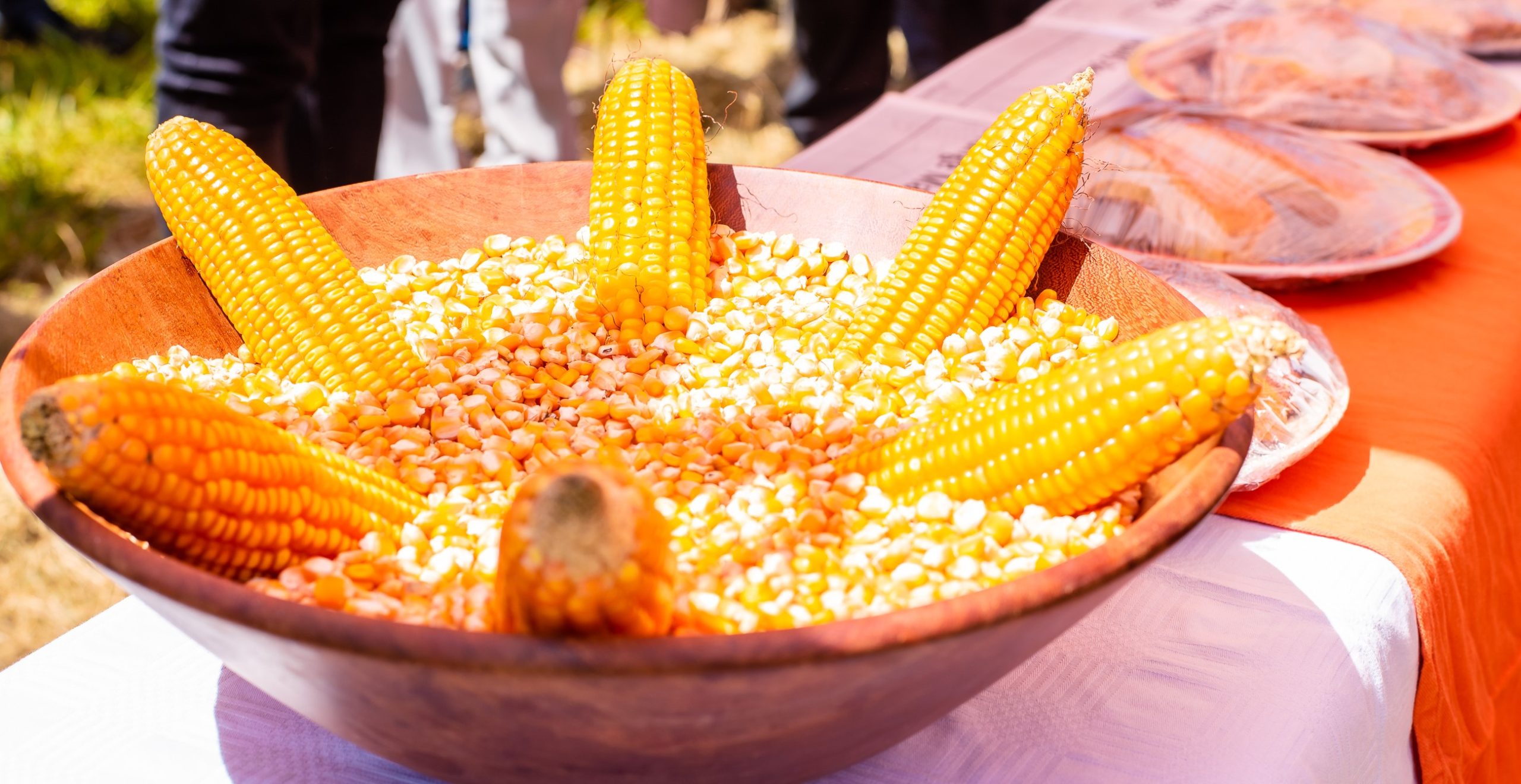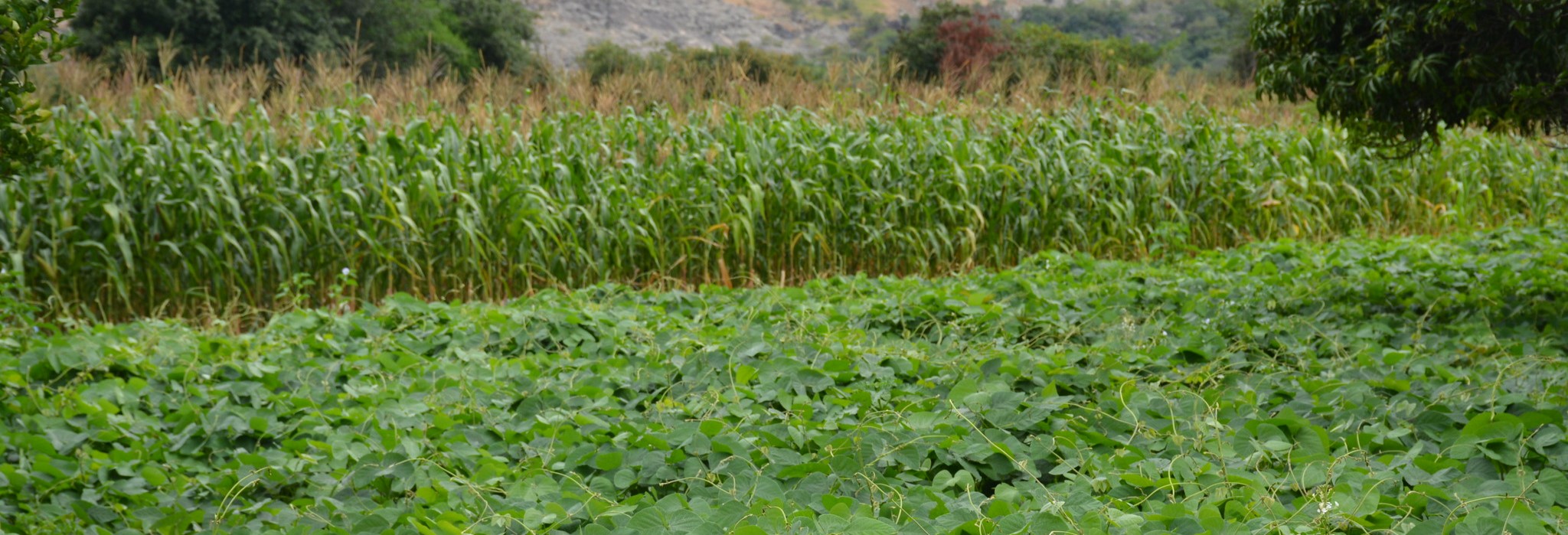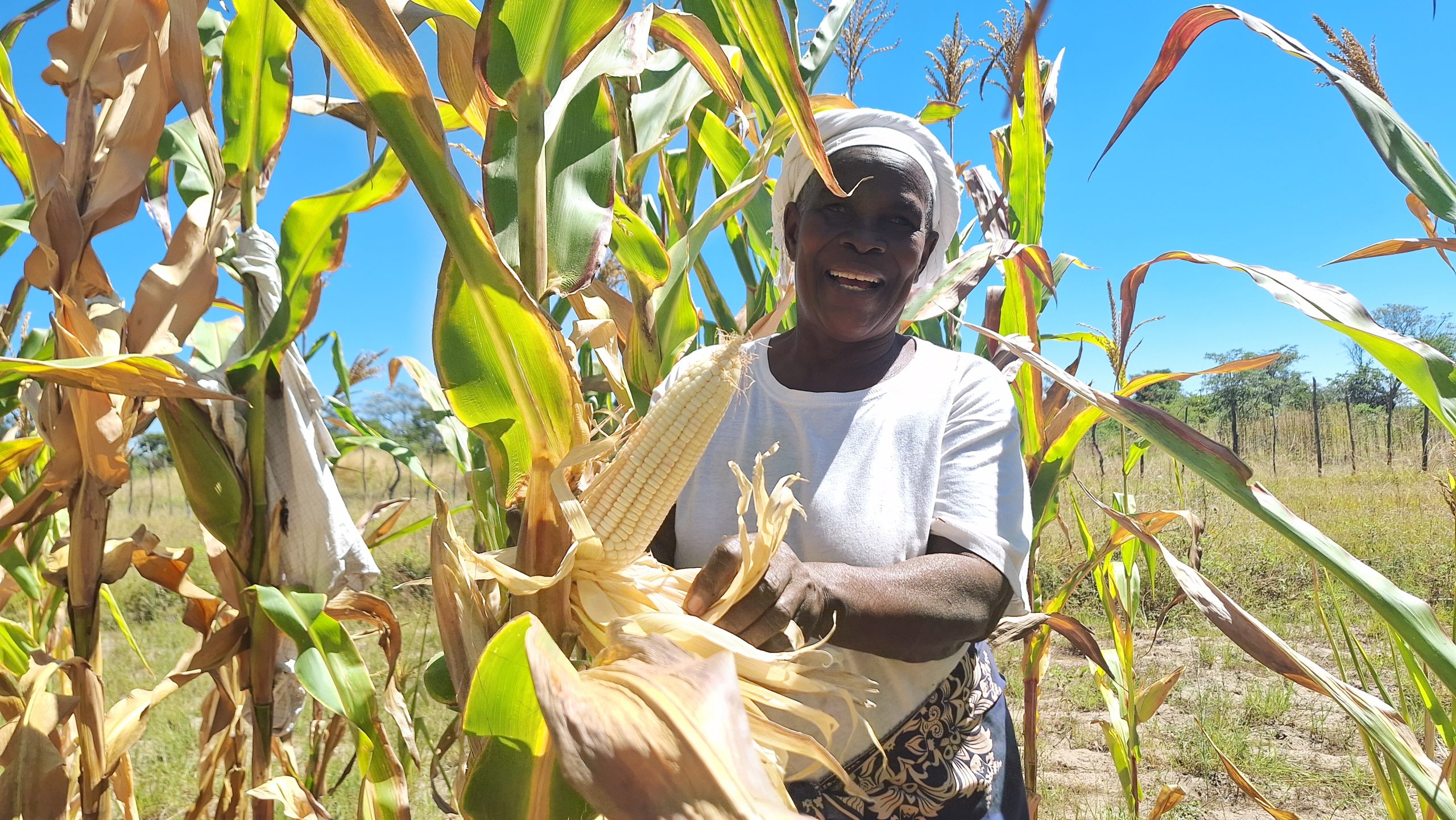
Maize productivity in eastern and southern Africa faces numerous challenges, including biotic and abiotic stresses, as well as socio-economic factors. To tackle these constraints, CIMMYT, in collaboration with partners, has been developing elite multiple stress-tolerant maize hybrids for different market segments. The hybrids are rigorously evaluated in research stations under managed stresses, especially those faced by farmers, including drought, heat, and low nitrogen. The process is complemented with evaluations conducted in actual farmer conditions through a participatory approach, which enables researchers to identify traits preferred by farmers.
Over the years, and through consistent engagement with farming communities, CIMMYT and partners have established a large on-farm testing network to allow farmers to test the best-performing hybrids within their own fields and management. This ensures that new varieties selected for commercialization suit the needs, constraints, and priorities of smallholder farmers.
Centrality of ROFT in the variety development process
Regional on-farm trials (ROFTs) are a crucial step towards maximizing the impact of breeding investments. ROFTs help scientists understand the performance of pipeline hybrids under diverse management conditions. The data and insights gathered from these trials, led by district leads, are instrumental in identifying the best varieties to release. In Zimbabwe, the extensive on-farm testing is conducted with support from Zimbabwe’s government extension arm, the Department of Agricultural, Technical, and Extension Services (Agritex), and selected seed companies.
To help track the progress or challenges in varietal performance evaluation at the farm level, CIMMYT has been convening feedback sessions with district agriculture extension officers (DAEOs) across 19 districts. These sessions have been instrumental in strengthening the collaboration with Agritex, standardizing data collection, and improving data quality and returns from the established on-farm testing network.
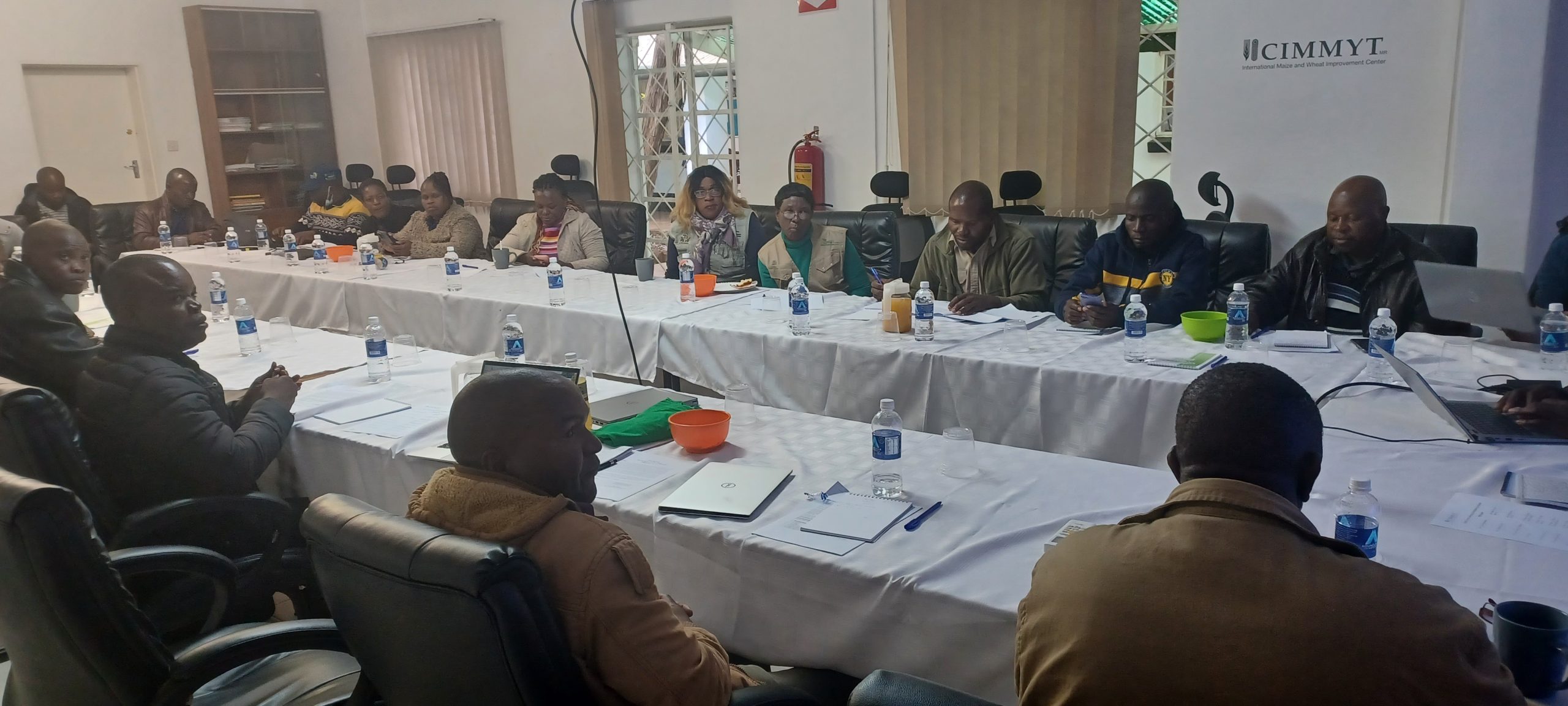
The ROFT trials have been ongoing in Zimbabwe for over a decade across 19 districts, located in natural regions I, II, and III. These trials have been implemented by more than 137 AEOs and have involved over 1,000 farmers. The network deliberately included a diverse range of farmers, with around 40% being female plot managers, to encompass a wide range of smallholder farming practices.
Participatory engagement is key
Every year, CIMMYT produces improved varieties that are then taken up by partners, including National Agricultural Research System (NARS) partners and seed companies. The on-farm trials aim to generate agronomic performance data in comparison to the widely grown commercial varieties and farmers’ own varieties. This data is used for a rigorous advancement process, where varieties that pass the test are then furthered for licensing and possible commercialization by CIMMYT’s partners.
Farmer involvement at the final stage of the variety selection process is key to the success of these trials. Farmers evaluate the varieties based on their specific needs, on their farms. This step is crucial as it empowers farmers to have a say in the variety development process. CIMMYT actively uses this participatory selection approach, seeking input from farmers and refining breeding targets as necessary. Farmers communicate their preferences and feedback through the farmer evaluation sheets, helping breeders fine-tune their targets and develop varieties that meet farmers’ needs.
Another key element of the on-farm trials is that they help assess breeding progress in farmers’ fields in terms of crop productivity and return on investment.
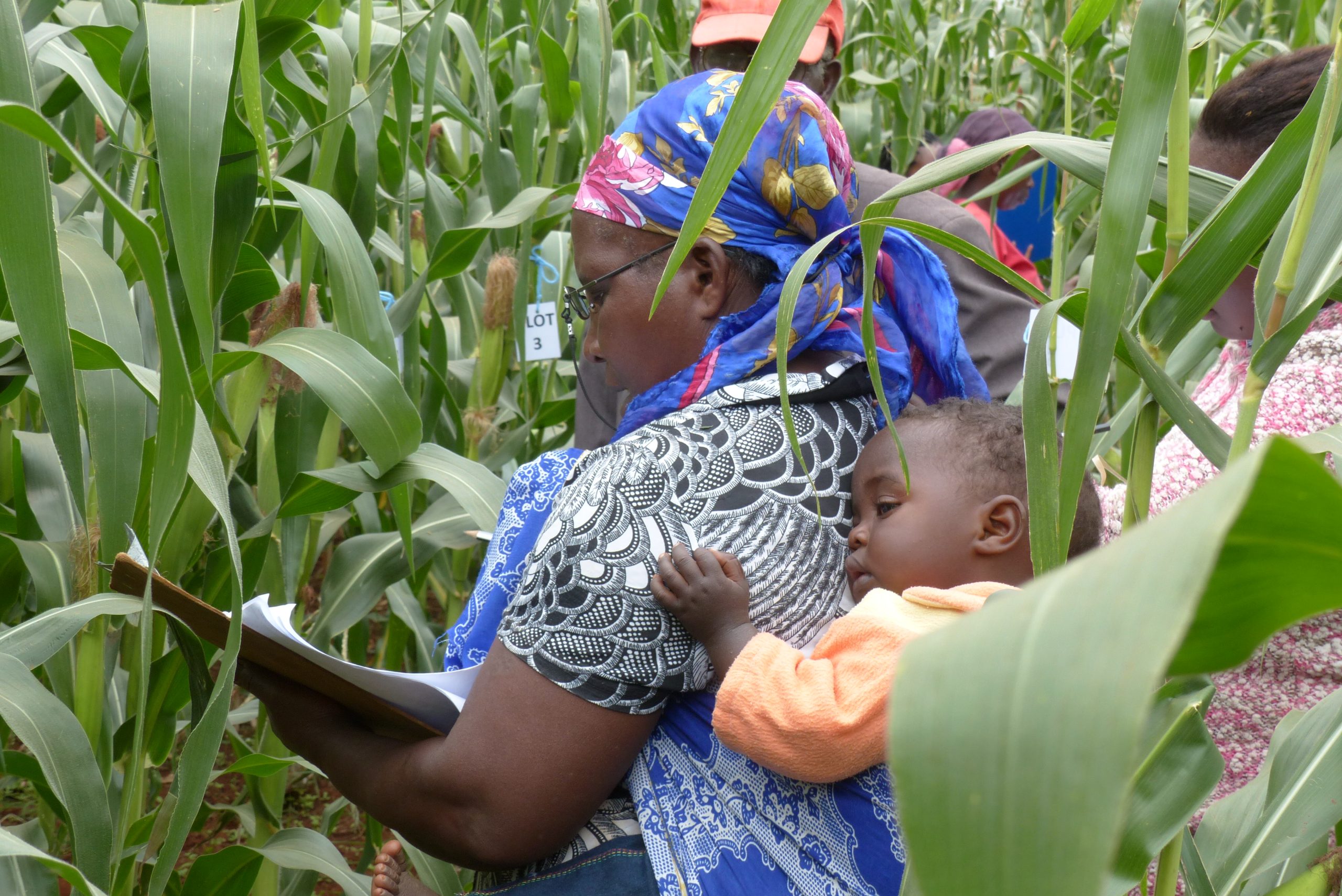
 Capacity development
Capacity development 